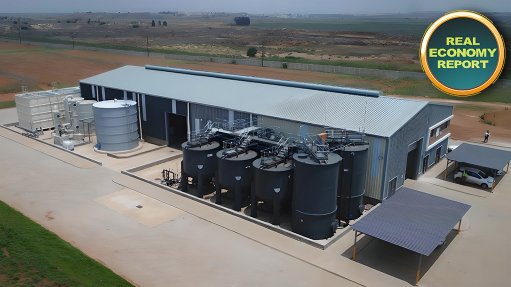Coalition era beckoning?
I did not know of Thapelo Amad at all prior to his short-lived tenure as the mayor of Johannesburg. Just as I was beginning to form an opinion of him, he resigned, but that was not before I had concluded that he was seriously out of his depth as the city’s number one citizen and that those who parachuted him into this powerful position were probably ruing their decision.
Amad’s exit was the latest in a series of comical mayoral musical chairs in a few short months in Johannesburg itself as well as in Tshwane and Ekurhuleni – all Gauteng metropolitan municipalities where coalitions run the show on the back of the non-emergence of an outright winner in the 2021 local government elections.
Although the governing African National Congress retained control in most of the country’s municipalities in those elections, its national vote tally dipped below 50% for the first time since the dawn of democracy, prompting predictions that a similar fate awaits the party at the next general elections, due in about a year.
So, could instability of the nature witnessed in Ekurhuleni, Johannesburg and Tshwane be in the offing at national level, come 2024? Pundits would say yes.
In a politically fragmented country such as South Africa – a fact borne out by the many political parties in the country – the number of votes secured by each of the parties that eventually form coalitions tends to be low. As a result, any defection from a ruling coalition to join an opposing coalition or as a form of throwing out the toys will likely cause instability.
Defections are frequent occurrences in coalition governments for several reasons. For one thing, coalition agreements tend to be ‘incomplete contracts’ that, unlike commercial deals, are usually not legally enforceable. As a result, instead of sticking it out, parties tend to walk out when they feel hard done by a coalition partner or partners.
Instability is also attributable to the phenomenon of poly-think, whereby a group comprising several disparate subgroups, with each intent on achieving its goals, struggles to make a collective decision. Given the ideological misalignment among South Africa’s political parties, it’s not difficult to understand why coalition-run municipalities are frequently plagued by bickering by the coalition partners.
As an aside, South Africa has experienced what it is like to be on the opposite end of the spectrum from poly-think – and that is in the realm of group-think, whereby the cohesiveness of a group or the presence of a so-called mind guard in the group dissuades individuals from challenging a decision that may not be the best for the group or stakeholders.
That happened during the Thabo Mbeki era, when, owing to the former President’s outlandish views on HIV/Aids, HIV-positive South Africans were denied life-saving treatment, resulting in about 300 000 dying unnecessarily, according to a study by academics from Harvard University. I’m sure there were many men and women in Mbeki’s Cabinet who did not subscribe to his folly but, with him as a mind guard, could not voice their misgivings.
But I digress. My point is that a coalition at national level will not be a good thing for South Africa, just as coalitions have been rather disastrous for South Africa since they were first cobbled together after the 2016 municipal elections. We need not look far for evidence of this – they have been tried in neighbouring Lesotho, and the record is not inspiring. The first, in 2012, collapse over disagreement on the allocation of diplomatic and Cabinet posts among the coalition partners. Subsequent coalitions also floundered. The current government, which took office in 2022, also comprises multiple parties. Only time will tell if it will see its term out.
Comments
Press Office
Announcements
What's On
Subscribe to improve your user experience...
Option 1 (equivalent of R125 a month):
Receive a weekly copy of Creamer Media's Engineering News & Mining Weekly magazine
(print copy for those in South Africa and e-magazine for those outside of South Africa)
Receive daily email newsletters
Access to full search results
Access archive of magazine back copies
Access to Projects in Progress
Access to ONE Research Report of your choice in PDF format
Option 2 (equivalent of R375 a month):
All benefits from Option 1
PLUS
Access to Creamer Media's Research Channel Africa for ALL Research Reports, in PDF format, on various industrial and mining sectors
including Electricity; Water; Energy Transition; Hydrogen; Roads, Rail and Ports; Coal; Gold; Platinum; Battery Metals; etc.
Already a subscriber?
Forgotten your password?
Receive weekly copy of Creamer Media's Engineering News & Mining Weekly magazine (print copy for those in South Africa and e-magazine for those outside of South Africa)
➕
Recieve daily email newsletters
➕
Access to full search results
➕
Access archive of magazine back copies
➕
Access to Projects in Progress
➕
Access to ONE Research Report of your choice in PDF format
RESEARCH CHANNEL AFRICA
R4500 (equivalent of R375 a month)
SUBSCRIBEAll benefits from Option 1
➕
Access to Creamer Media's Research Channel Africa for ALL Research Reports on various industrial and mining sectors, in PDF format, including on:
Electricity
➕
Water
➕
Energy Transition
➕
Hydrogen
➕
Roads, Rail and Ports
➕
Coal
➕
Gold
➕
Platinum
➕
Battery Metals
➕
etc.
Receive all benefits from Option 1 or Option 2 delivered to numerous people at your company
➕
Multiple User names and Passwords for simultaneous log-ins
➕
Intranet integration access to all in your organisation


















